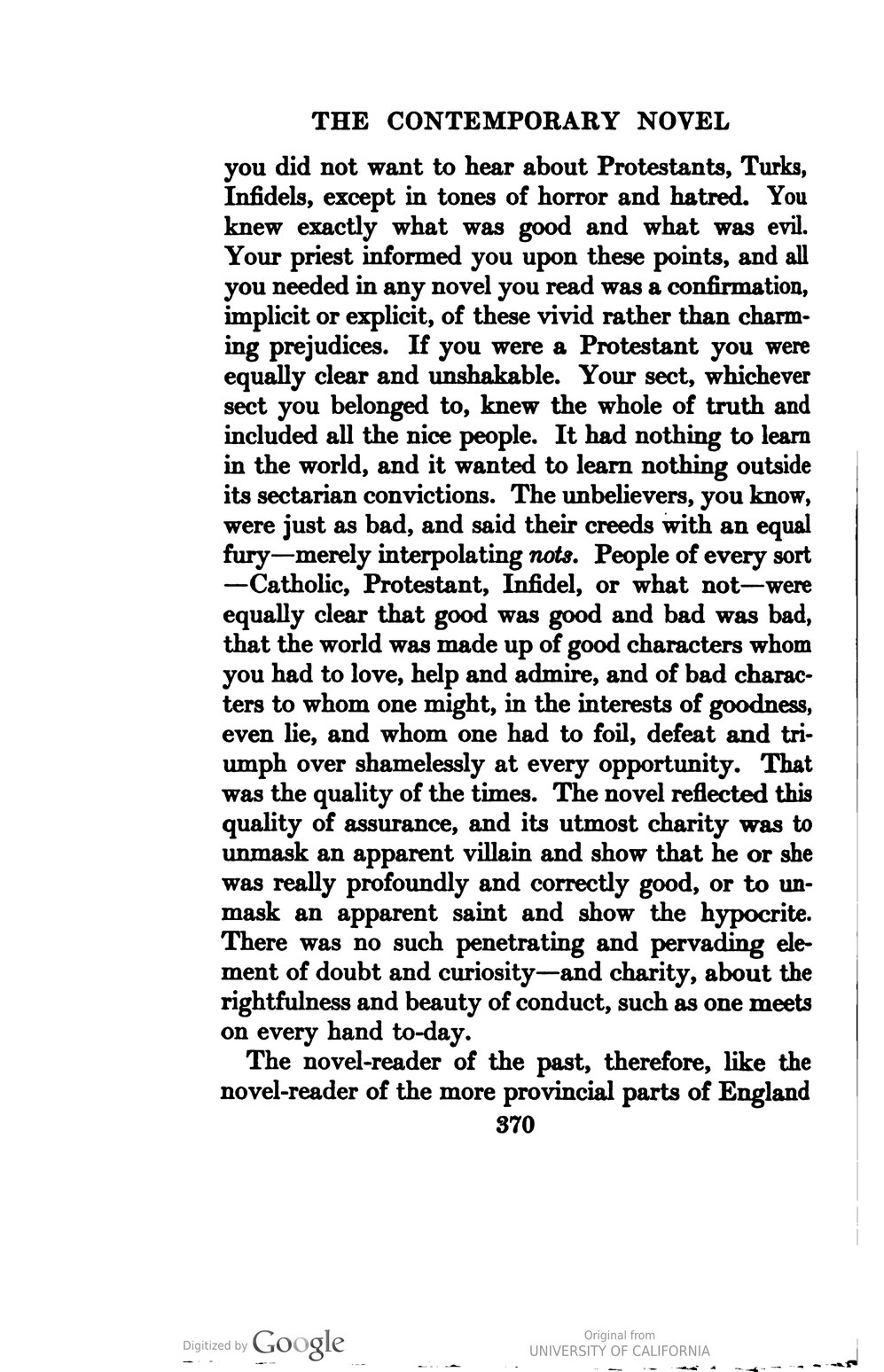THE CONTEMPORARY NOVEL
you did not want to hear about Protestants, Turks, Infidels, except in tones of horror and hatred. You knew exactly what was good and what was evil. Your priest informed you upon these points, and all you needed in any novel you read was a confirmation, implicit or explicit, of these vivid rather than charming prejudices. If you were a Protestant you were equally clear and unshakable. Your sect, whichever sect you belonged to, knew the whole of truth and included all the nice people. It had nothing to learn in the world, and it wanted to learn nothing outside its sectarian convictions. The unbelievers, you know, were just as bad, and said their creeds with an equal fury—merely interpolating nots. People of every sort—Catholic, Protestant, Infidel, or what not—were equally clear that good was good and bad was bad, that the world was made up of good characters whom you had to love, help and admire, and of bad characters to whom one might, in the interests of goodness, even lie, and whom one had to foil, defeat and triumph over shamelessly at every opportunity. That was the quality of the times. The novel reflected this quality of assurance, and its utmost charity was to unmask an apparent villain and show that he or she was really profoundly and correctly good, or to unmask an apparent saint and show the hypocrite. There was no such penetrating and pervading element of doubt and curiosity—and charity, about the rightfulness and beauty of conduct, such as one meets on every hand to-day.
The novel-reader of the past, therefore, like the novel-reader of the more provincial parts of England
370
